The Wisdom of Collecting Illustration Art, from the Wall Street Journal
Deb Hoeffner brought this excellent article to our attention, via the Wall Street Journal online – and we’d like illustrators and collectors alike to note, the article was in the WSJ section called “Wealth Management.”
Beyond Norman Rockwell
You first saw the illustration in a comic, or on a magazine cover or in an ad. Now art collectors may be flocking to buy the original.
By DANIEL GRANT
Everyone carries in their heads favorite images from picture books, comics, magazine covers, cartoons and advertisements. Now much of the original artwork on which these mass-produced images were based has become a hot corner of the art market.
It’s called illustration art. The public is mainly familiar with its high end— painters such as Norman Rockwell, Maxfield Parrish and N.C. Wyeth. These painters earned their living as illustrators and commercial artists, but in recent years their work has been taken more seriously by the art world—and by collectors who are bidding up record prices. “Breaking Home Ties,” a 1954 painting by Rockwell, who made his name creating covers of the Saturday Evening Post, sold for $15.4 million at a Sotheby’s auction in 2006. The same year, “Daybreak,” a 1922 oil-on-board painting by Parrish, an illustrator of books, magazines and advertisements in the early 20th century, also set a record price for his work, bringing $7.6 million in an auction at Christie’s.
Not all illustration art is as well-known—or as pricey. Judy Cutler, owner of New York’s American Illustrators Gallery, says the pastels and watercolors of children’s book illustrator Mary Jane Begin (now at the Rhode Island School of Design) go for $500 to $20,000. And works by former Boston Globe editorial cartoonist Paul Szep, she says, range from $500 to $2,500.
‘Golden Age’
Todd Hignite, who heads illustration-art sales at Dallas-based Heritage Auctioneers & Galleries Inc., says his gallery’s sales of illustration art have averaged just over $10 million in the past two years, up from $4.4 million in 2008. Along the way, Heritage has set auction records for a number of illustrators, including Howard Chandler Christy ($179,250 for his 1946 oil “Nymphs in Summer”), Maurice Sendak ($74,690 for a watercolor backdrop landscape for his book “Where the Wild Things Are”) and Garth Williams ($155,350 for his cover art to E.B. White’s “Charlotte’s Web”).
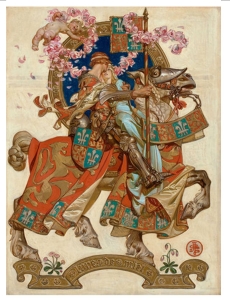
J.C. Leyendecker’s Honeymoon, which originally appeared on the cover of The Saturday Evening Post in 1926, sold for $194,500 at Heritage Auctions’ sale in April (Heritage Auctions)
J.C. Leyendecker’s Honeymoon, which originally appeared on the cover of The Saturday Evening Post in 1926, sold for $194,500 at Heritage Auctions’ sale in April
The market has been particularly robust for pieces from what is called the Golden Age of Illustration, from roughly 1890 to 1940. A Jessie Willcox Smith watercolor, “How Doth the Little Busy Bee” (published in Robert Louis Stevenson’s “A Child’s Garden of Verses”), sold for $386,500 at Sotheby’s in 2011, whereas a generation ago her price range was roughly $2,000 to $3,000, says Ms. Cutler. Similarly, J.C. Leyendecker’s “Football Scrimmage,” painted in the 1920s, was sold for $209,100 at a Christie’s sale in 2004, when “years ago you could buy his works by the pound,” adds Ms. Cutler, who, with her husband, co-founded the National Museum of American Illustration in Newport, R.I.
Crossover Buyers
Leading art-auction houses such as Christie’s and Sotheby’s in years past were apt to place illustration pieces in their lower-price category sales, generally under $5,000. But more recently they’ve included a growing number of significant works in their major and midseason American art sales. Liz Sterling, director of Christie’s American Paintings department, notes that while the majority of buyers of illustration art are collectors and dealers, “there has been some crossover, where you see collectors of 19th century American art, particularly American landscape painting, buying works in this area.”
It is more rare, but not unheard of, for the work of cartoonists and illustrators to be sold at fine-art galleries. For example, collectors can buy David Levine pen-and-ink caricatures, many of which first appeared in the New York Review of Books, at New York’s Forum Gallery. A Levine cartoon can be purchased for several thousand dollars.
For pieces that resonate with memories, many collectors of illustration art will pay in the thousands and sometimes tens of thousands of dollars.Al Hirschfeld’s pen-and-ink and watercolor caricatures of Broadway and movie performers many of which originally were published in the New York Times, are sold at Margo Feiden Galleries Ltd. in New York. A top Hirschfeld can be priced upward of $20,000.
Illustration House, a gallery in New York that deals exclusively in works of illustrators, sells original artwork for pages that appeared in comic books such as Spider-Man (from the 1950s and ’60s) and Watchmen (in the 1980s).
‘Homespun Images’
The supply of illustration art, of course, is large, and prices may range widely, starting at just a few hundred dollars and topping $50,000. Illustration House carries categories including science fiction, fantasy, children’s book illustrations, cartoons and pinups. But its most popular area in terms of sales is Americana, which “appeals to people who don’t necessarily know much about art but are turned on by homespun images,” says gallery president Roger Reed. The average price for Americana illustrations, he says, is $10,000 to $20,000.
Prices tend to be higher for prime examples of pinup art, paintings and drawings of scantily clad women that first appeared on calendars and in advertisements. At New York’s Louis K. Meisel Gallery, pastels by Earl Moran and Zoe Mozert sell from $10,000 to $40,000, oil-on-canvas works by Gil Elvgren go for $200,000 to $300,000. According to Heritage’s Mr. Hignite, Elvgren is “far and away” the Dallas auction house’s top-selling pinup artist.
Mr. Meisel himself is a longtime collector of pinup art. “When I started collecting pinup art in the 1970s, they cost maybe $300 apiece,” he says. Now a good work, “can be hundreds of thousands of dollars.”
Mr. Grant is a writer in Amherst, Mass. He can be reached at reports@wsj.com.



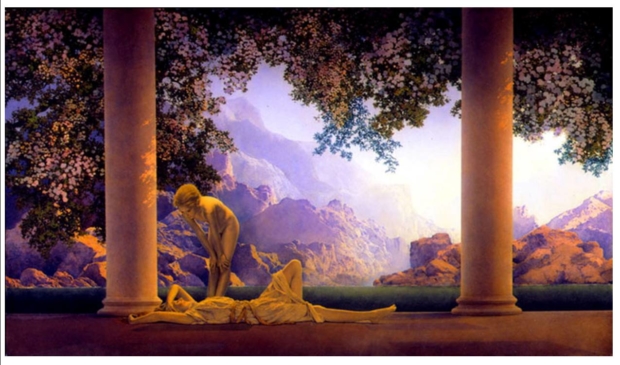
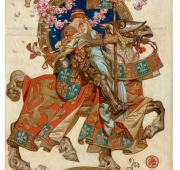
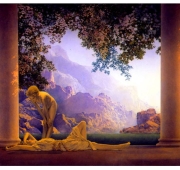
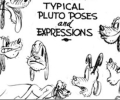
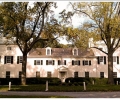
0 Comments